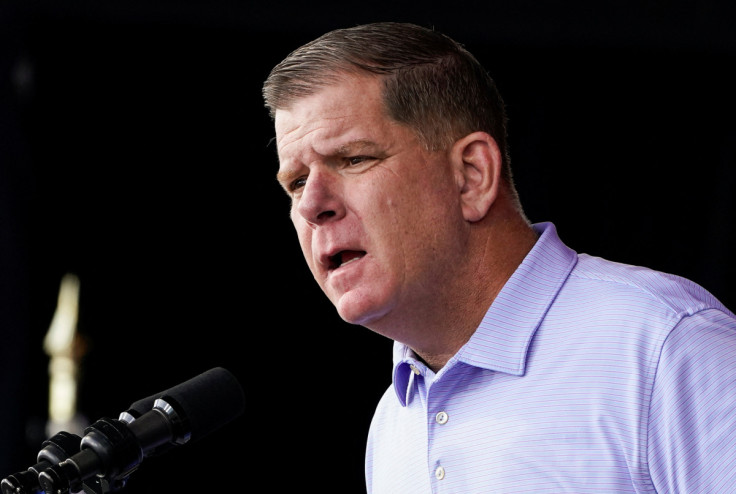U.S. Hosting Talks With Union, Railroads To Avert Shutdown

U.S. Labor Secretary Marty Walsh is hosting talks in Washington on Wednesday with freight railroad and union officials aimed at heading off a rail shutdown that could happen as early as Friday.
The Labor Department said the meeting was the latest in the Biden administration's "sustained engagement and hands-on efforts to encourage the parties to come to a mutually beneficial agreement."
President Joe Biden's administration on Tuesday said it was making contingency plans aimed at ensuring deliveries of critical goods in the event of a shutdown of the U.S. rail system while pressing railroads and unions to reach a deal to avoid a work stoppage affecting freight and passenger service.
A shutdown could freeze almost 30% of U.S. cargo shipments, stoke inflation, impede supplies of food and fuel, cost the U.S. economy about $2 billion per day and cause transportation woes.
Railroads including Union Pacific, Berkshire Hathaway's BNSF, CSX and Norfolk Southern have until a minute after midnight on Friday to reach tentative deals with three hold-out unions representing about 60,000 workers.
If agreements are not reached, there could be union strikes or employer lockouts. But the railroads and unions also could agree to stay at the bargaining table, or the Democratic-led U.S. Congress could intervene by extending talks or establishing settlement terms.
The Biden administration's push comes as food, energy, automotive and retail groups implore Congress to intervene, saying a rail shutdown could threaten everything from global grain supplies to shipments of goods related to Christmas holiday shopping.
The Corn Refiners Association and the National Corn Growers Association said a work stoppage would "cripple U.S. agricultural production and supply chains and exacerbate food price inflation."
Railroads originate 24% of U.S. grain shipments, of which approximately half (691,000 carloads) is corn. Grain shipments scheduled for Thursday of this week are being canceled.
One key issue is ensuring "continued distribution of vital hazardous materials that depend on rail transport, such as chlorine for water treatment plants," a White House official told Reuters on Tuesday. Railroads on Monday stopped accepting shipments for hazardous materials such as chlorine and chemicals used in fertilizer so they are not stranded in unsafe locations if rail traffic stops.
The U.S. energy sector relies on railroads to move coal, crude oil, ethanol and other products.
U.S. passenger railroad Amtrak, which uses tracks maintained by freight railways, is facing growing disruptions. Amtrak said it will cancel trains on seven more long-distance routes on Wednesday after it began canceling trains on four long-distance routes on Tuesday.
© Copyright Thomson Reuters 2024. All rights reserved.











